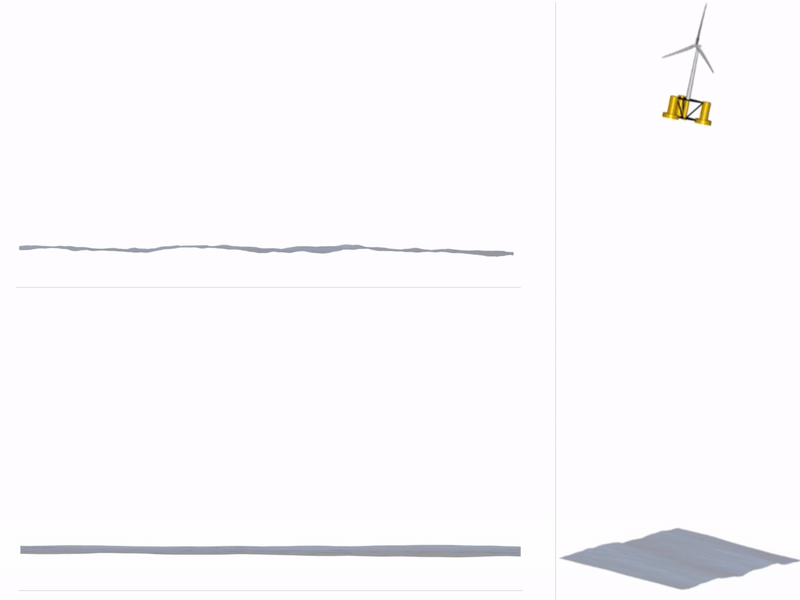Forum
Important Notice for New User Registrations
To combat an increasing number of spam and bot registrations, we now manually approve all new user registrations. While this may cause a delay until your account is approved, this step is essential to ensure the quality and security of this forum.
To help us verify your registration as legitimate, please use a clear name as user name or an official email address (such as a work, university, or similar address). If you’re concerned that we may not recognize your registration as non-spam, feel free to email us at with a request to approve your username.
VAWT Optimization
Quote from Leo on 20. November 2023, 21:24Hi guys,
I am a student and am currently trying to write Python software for a project that optimizes the structure of a VAWT.
So it’s actually a simple optimization algorithm that tries out different combinations of parameters using the SIL interface and tracks their performance.
I wanted to ask how the API is intended to set the parameters of the VAWT (such as tip speed ratio, chord length, setting angle, etc.) and
whether this is even possible.
I would like to evaluate these based on efficiency, performance and Reinolds number. (maybe someone knows how I can read
these values from the simulation)Best regards
Leo
Hi guys,
I am a student and am currently trying to write Python software for a project that optimizes the structure of a VAWT.
So it’s actually a simple optimization algorithm that tries out different combinations of parameters using the SIL interface and tracks their performance.
I wanted to ask how the API is intended to set the parameters of the VAWT (such as tip speed ratio, chord length, setting angle, etc.) and
whether this is even possible.
I would like to evaluate these based on efficiency, performance and Reinolds number. (maybe someone knows how I can read
these values from the simulation)
Best regards
Leo
Quote from David on 21. November 2023, 11:03Hello Leo,
what you are trying to achieve is very much possible in the SIL interface.
The SIL interface offers a range of functions that allow you to adjust parameters such as wind speed and RPM. You can find these options in the Interface Function Definitions section. You can find these options in the Interface Function Definitions.
If you need to modify the turbine’s structural design, you can do so by editing the ASCII ASCII turbine definition (with the .trb extension). Make sure to complete these modifications before loading the Simulation Definition file (with the .sim extension) into the SIL interface. This way, the changes are incorporated into the simulation.
BR,
David
Hello Leo,
what you are trying to achieve is very much possible in the SIL interface.
The SIL interface offers a range of functions that allow you to adjust parameters such as wind speed and RPM. You can find these options in the Interface Function Definitions section. You can find these options in the Interface Function Definitions.
If you need to modify the turbine’s structural design, you can do so by editing the ASCII ASCII turbine definition (with the .trb extension). Make sure to complete these modifications before loading the Simulation Definition file (with the .sim extension) into the SIL interface. This way, the changes are incorporated into the simulation.
BR,
David
Quote from Leo on 21. November 2023, 19:30Hi David,
thank you for the fast response. What is the best way to read the simulation results, when the simulation is finished? Like efficiency, performance and Reinolds number?
Best regards,
Leo
Hi David,
thank you for the fast response. What is the best way to read the simulation results, when the simulation is finished? Like efficiency, performance and Reinolds number?
Best regards,
Leo
Quote from David on 22. November 2023, 20:57Hi Leo,
you could either get any of the variables from the SIL interface by calling the function:
or you could store the simulation after the SIL run has finished, using:
and then open the finished project file in the QBlade GUI and checkout the results in the graphs. The quantities that you require (efficiency, performance and Reynolds number) are all found in the “Aerodynamic Time Graph”
BR,
David
Hi Leo,
you could either get any of the variables from the SIL interface by calling the function:
or you could store the simulation after the SIL run has finished, using:
and then open the finished project file in the QBlade GUI and checkout the results in the graphs. The quantities that you require (efficiency, performance and Reynolds number) are all found in the “Aerodynamic Time Graph”
BR,
David


